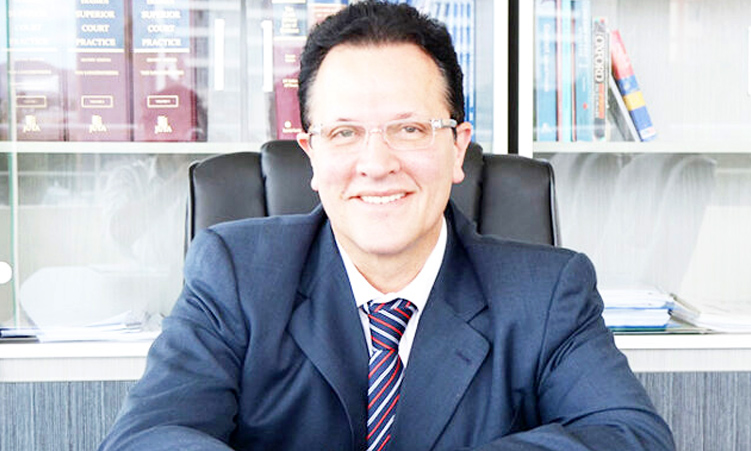As the country grapples with the increasingly contentious issue of same-sex marriage, diverse interest groups are debating the need for a national referendum on the issue.
Lawyer Richard Metcalfe advocates a referendum that would allow the entire nation to engage in a dignified and respectful dialogue.
He says the issue should be placed in the hands of all Namibians, reinforcing a sense of collective responsibility.
“We are all Namibians, so let us all decide on this issue,” Metcalfe said.
Metcalfe says lesbian, gay, bisexual, transgender, queer and intersex (LGBTQI+) individuals have always been an integral part of humanity and will continue to exist, despite senseless hatred.
The Independent Patriots for Change (IPC) argues that a national referendum is the only legitimate means through which Namibians can exercise their authority.
The party says a referendum is the only possible way to challenge and potentially overturn the recent Supreme Court judgement which calls for the recognition of same-sex marriages legally concluded outside of Namibia.
“It is the only possible avenue to seek to overturn the judgement. This given the pronouncement of their Lordship against the principles of the will of democratic [sic] majority and their stated implicit duty to protect the rights of the minority albeit contrary to Article 22,” the IPC said in a statement.
Meanwhile, Tony Hancox, the director of the Legal Assistance Centre (LAC), questions the government’s claims that same-sex marriage is un-African and contrary to societal morals.
While acknowledging that a referendum deals with a political decision, Hancox believes it could provide valuable insight into society’s prevailing beliefs.
“It may be a good idea to find out what people are really thinking,” she says.
CONSTITUTION REIGNS SUPREME
However, lawyer Carli Schickerling says a referendum cannot make binding decisions or transform unconstitutional behaviour into constitutional acts.
“It would make no difference . . . Our highest court has ruled that it will protect this minority as it is tasked to do in our Constitution,” she says.
Schickerling says any legislation passed by the parliament would not survive constitutional scrutiny when challenged in court.
Former Swapo Party Youth League leader Sioni Iileka has joined the chorus calling for a referendum, saying “real Namibians” would reject homosexuality.
“Can we be given a chance to decide through voting? I am sure the real Namibians will be able to smash this useless and futile agenda,” Iileka says.
Civil rights activist Omar van Reenen vehemently opposes subjecting human rights to a referendum.
Van Reenen says the abolition of apartheid and the promotion of women’s rights would not have succeeded if the political majority had the power to vote against it.
Van Reenen says human rights should not be subject to popular opinion, emphasising the clarity of the bill of rights in the Namibian Constitution, which guarantees equal rights for all citizens.
“Human rights should not go to a referendum. It is clear that our leaders are not in office to protect the minorities in this country.
“They are there to serve their own interests. It is not fair to use the LGBTQI+ community to score some cheap political points,” Van Reenen says.
Referendums have been utilised in numerous countries to prohibit or approve same-sex marriage.
Ireland made history in 2015 by becoming the first nation to legalise gay marriage through a popular vote.
Following this milestone, several other countries have also embraced same-sex marriage through this process.
Stay informed with The Namibian – your source for credible journalism. Get in-depth reporting and opinions for
only N$85 a month. Invest in journalism, invest in democracy –
Subscribe Now!










